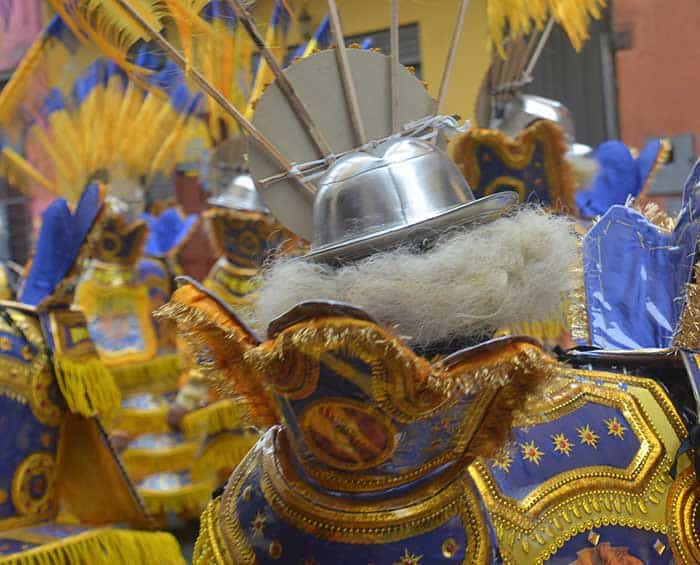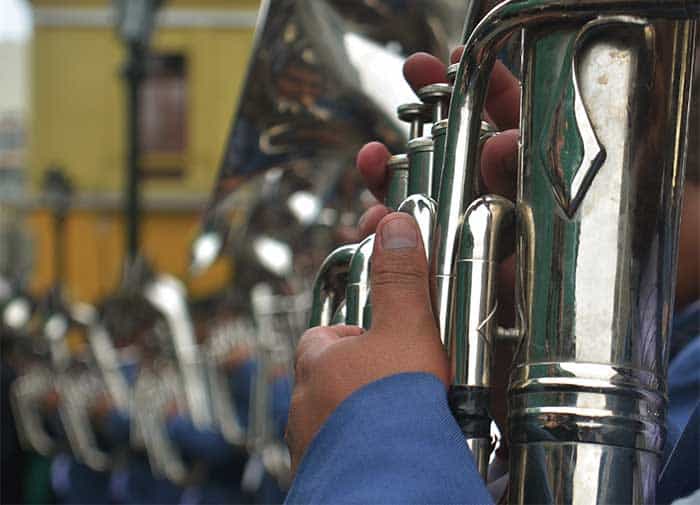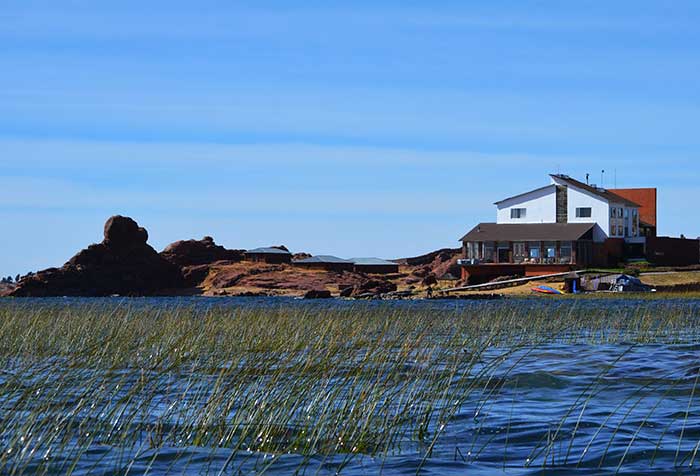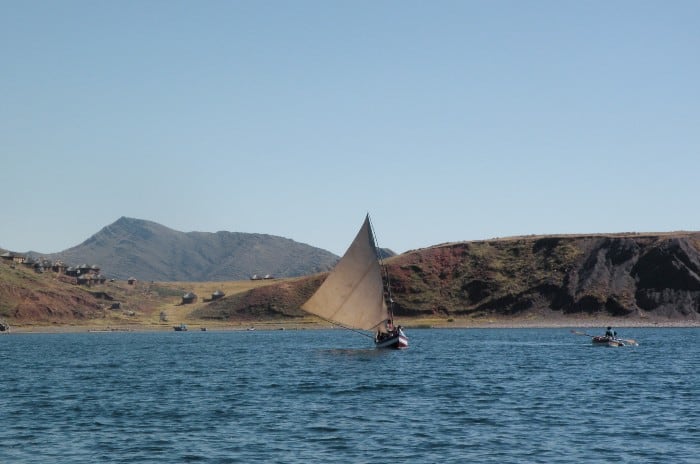
Some of our travelers ask us what makes Titicaca Lake and Puno so special? Is it worth it to include these destinations in a trip to Peru?
The fact that this massive lake, shared by Peru and Bolivia, is the highest navigable lake in the world definitely contributes to its popularity. Lying at 3,810 m (12,500 feet) above sea level in the Andes, it is recommendable to visit it after getting acclimatized either in Arequipa or Cusco.
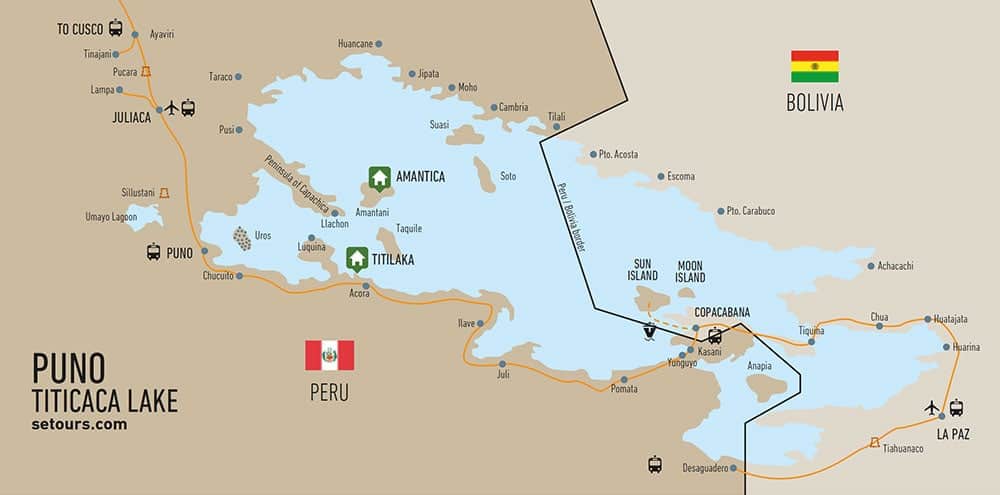
The landscapes that you get to see from the shores or while navigating are remarkable. The lake's immensity, the azure-colored water contrasting with the Andean mountains, and the clear skies are simply breathtaking.
There are a few ways to make the most out of a visit to Titicaca Lake and Puno. Our tip is to look for a way to see these landscapes almost alone. There are spots where you can even see the lake and the Bolivian snow-capped mountains in the background (Cordillera Real). Read further down :-).
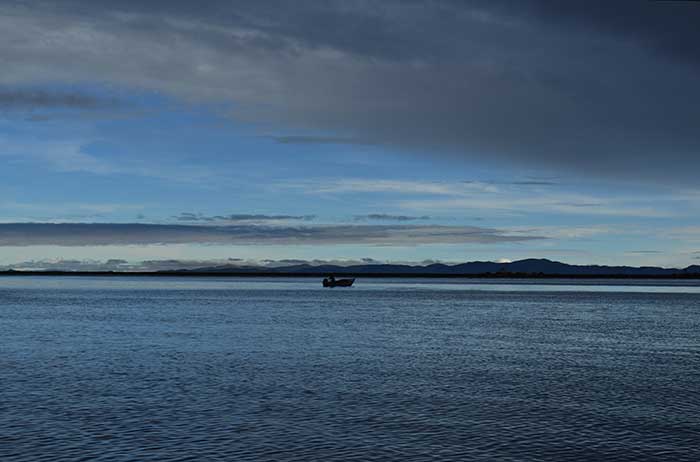
These 40 man-made floating islands on Lake Titicaca can be easily reached by boat for a half-day excursion. Our tip is to book it in the afternoon (conventional tours leave in the morning).
During most tours, you visit only one of the islands. The experience is similar for all of them. Visitors are greeted by community members who explain how they built the island with the reed growing in the lake. Then, ladies display their handicrafts for sale. Alternatively, you will be offered a ride around the island on a reed boat.
Yes, the ladies wearing traditional attire and the intense yellow of the reeds in contrast with the deep blue of the lake waters is 100% instagramable. However, we must admit that this is a very touristy experience.
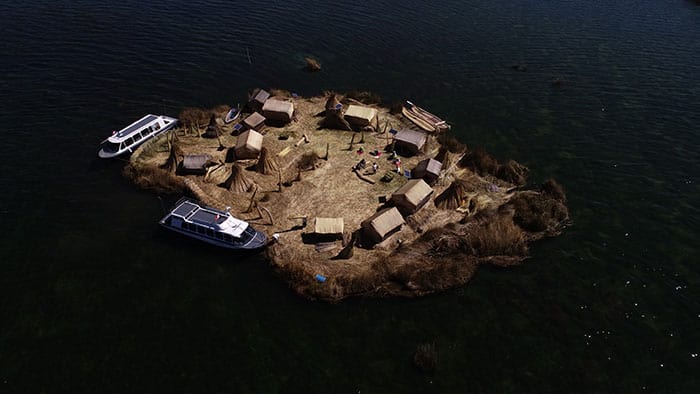
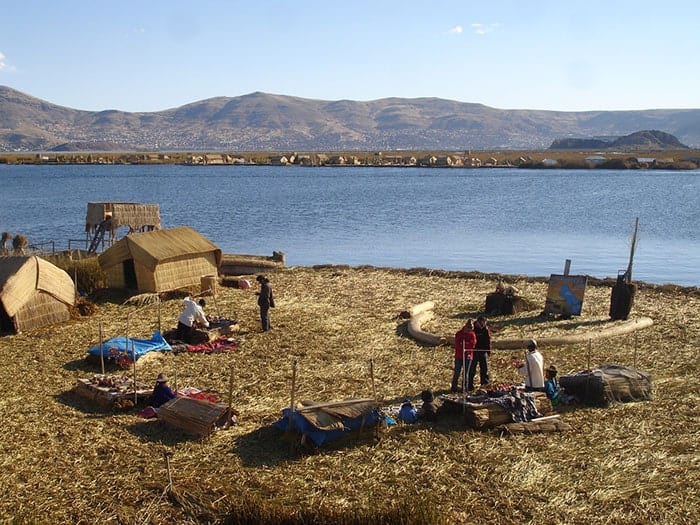
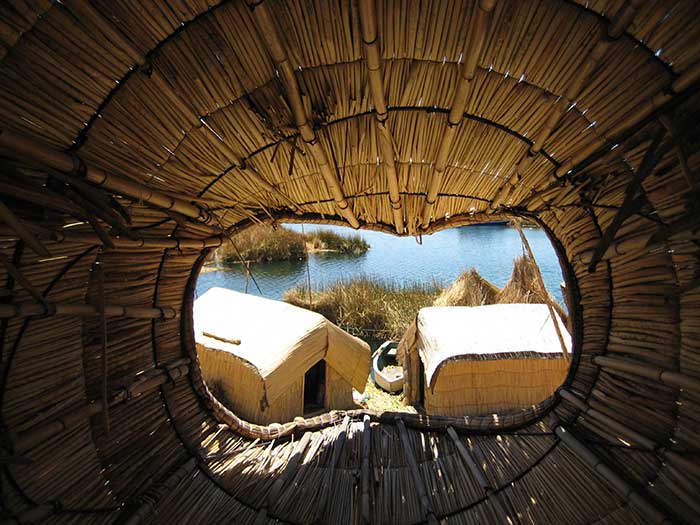
Most travelers opt for exploring Lake Titicaca on a full-day tour. The most conventional way is visiting one of the Uros Islands first before sailing to Taquile Island for a weaving demo followed by the chance to buy gloves, scarfs, and beanies made from 100% wool and knitted by the community.
Regardless of which of the community's restaurants you eat at, the main course remains the same: a plate of grilled fresh trout (from the lake), rice, salad and a side of fries.
Taquile Island, as you can see in the map above, requires a longer boat ride from Puno. Prices differ as there are conventional- and speed boats.
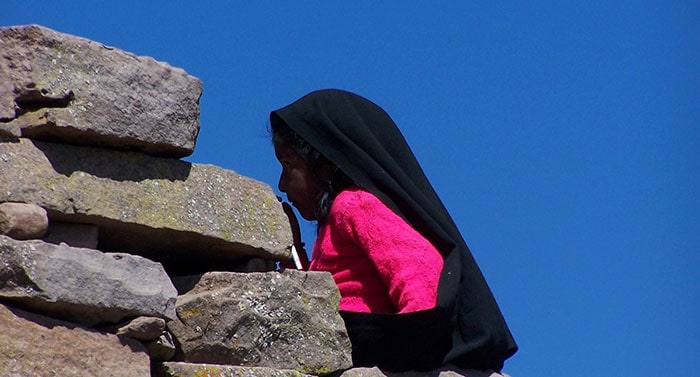
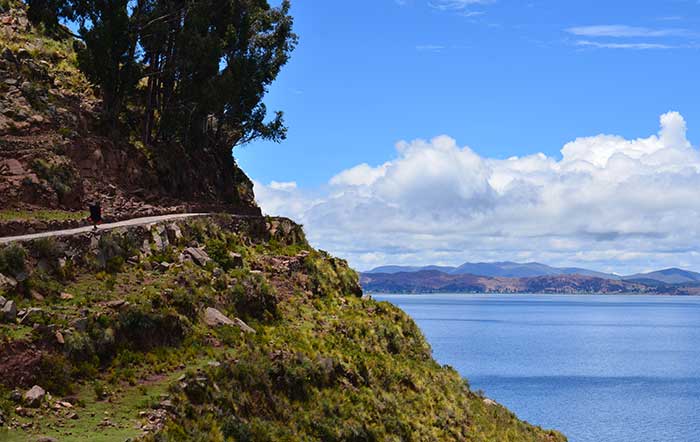
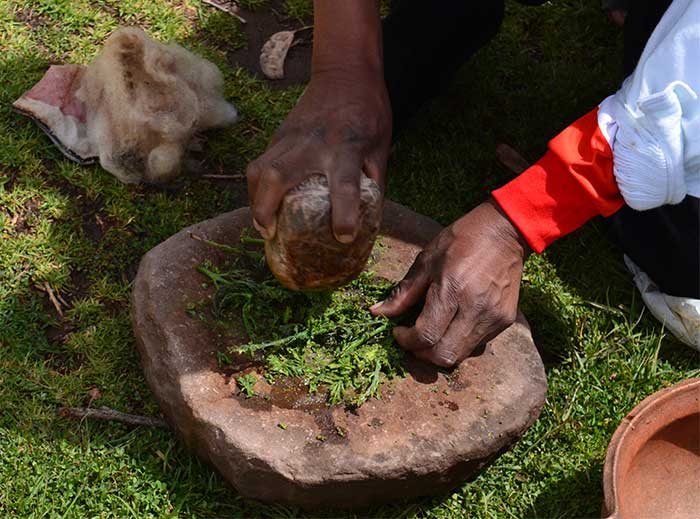
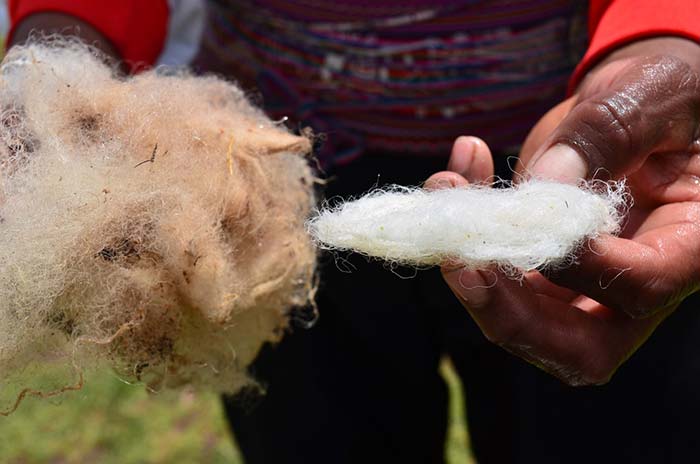
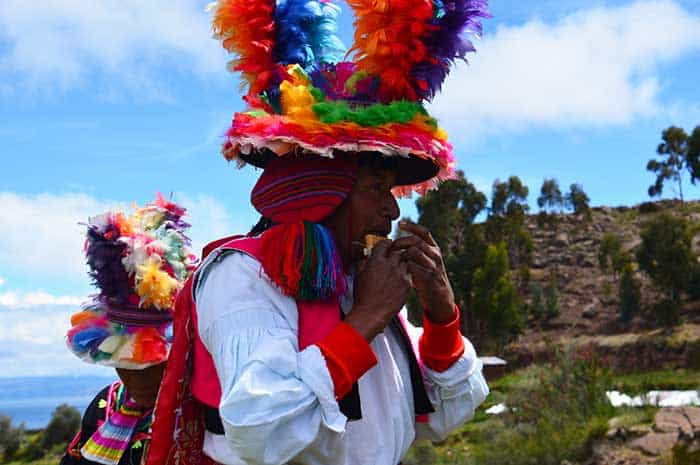
Since the Uros & Taquile Island excursion to experience Titicaca Lake is a very popular one, we try to do it differently to avoid the crowds. Our full-day excursion on Titicaca Lake is offered with a speedboat. It saves you up to 1.5 hrs of driving time compared to a traditional tour. Unlike the conventional tours, ours starts in Taquile.
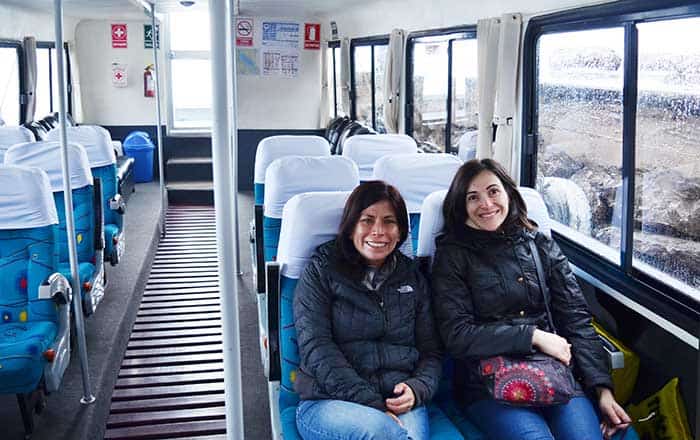
After a weaving demonstration there, you navigate to Luquina. This tiny, yet charming, community lies on a pristine corner in Puno – on the shores of Titicaca Lake and offers scenes of the rural life in Puno.
Crystal clear water welcomes visitors on their way to the local restaurant. Meals here are prepared with fresh produce and include local crops and superfoods such as quinoa (look for the pancakes below). The dining room is simple. Luxurious here are the undisturbed lake views :-).
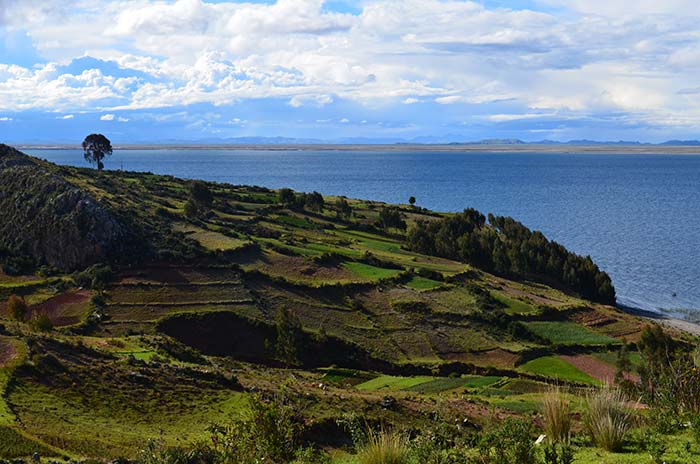
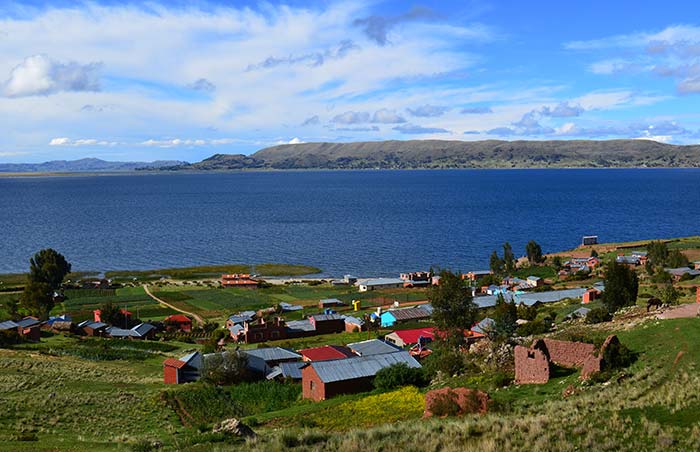
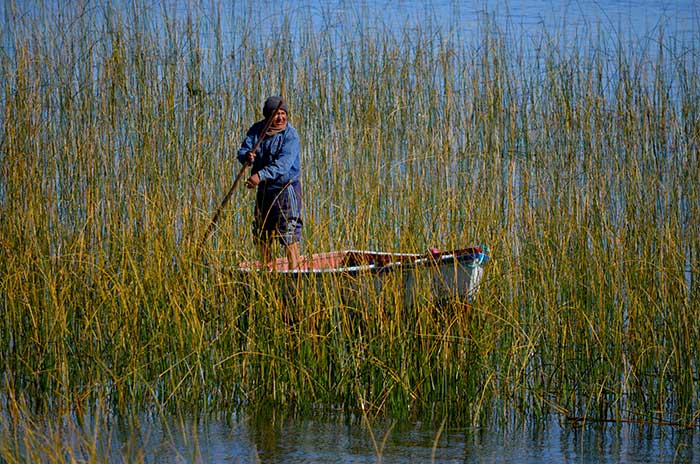
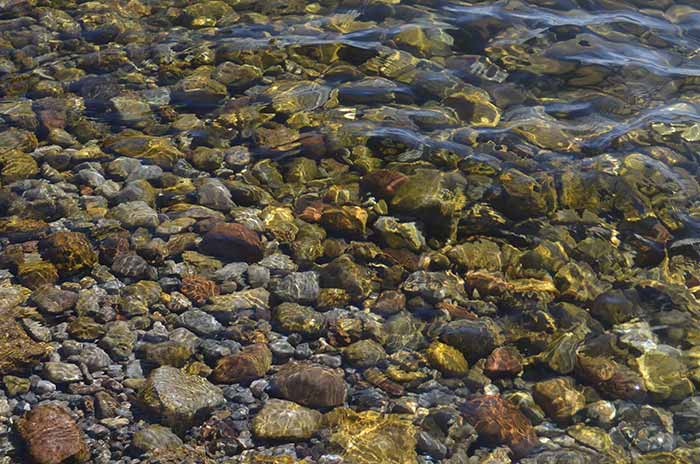
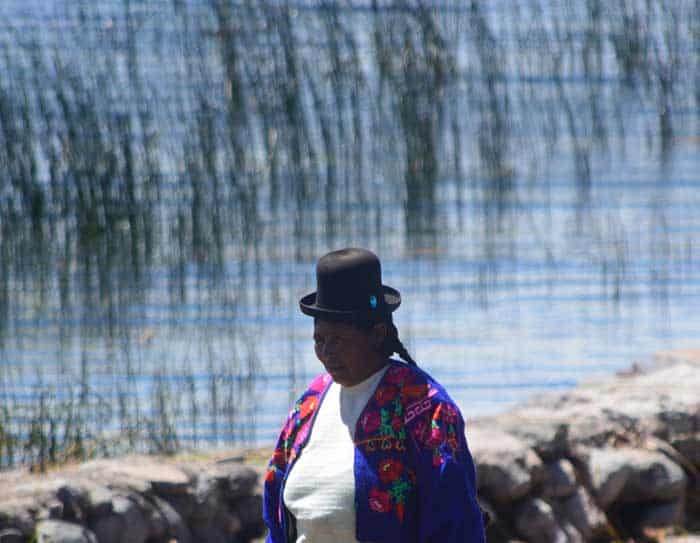
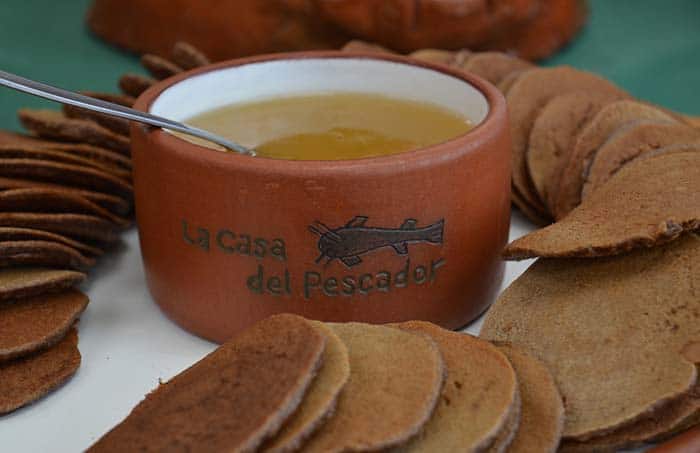
For those interested in some closer interaction with the community, Luquina offers small ‘casitas’ or small houses with the capacity to accommodate up to 3 guests. Booking in advance pays off as you can get a casita with a lake view.
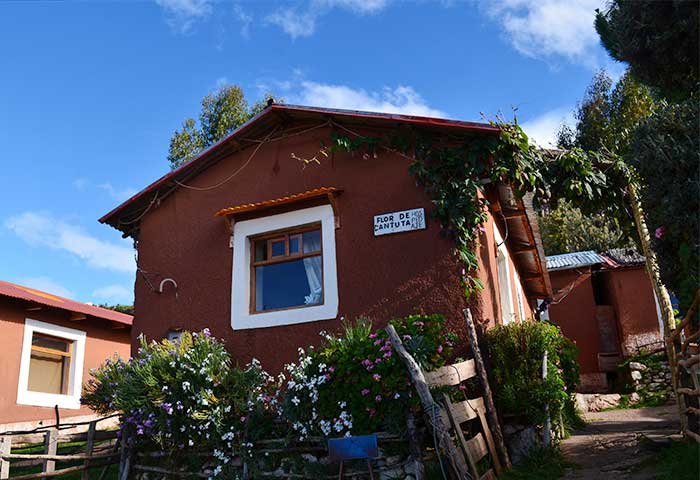
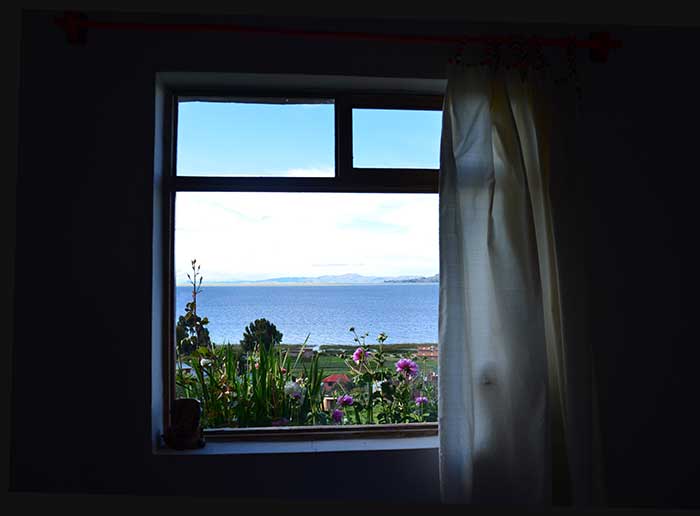
Although very simple, each casita comes with a private bathroom (and electric shower). Overnighting gives you the chance to contemplate the sunset with mesmerizing views from the top of the peninsula (a hike is required). Alternatively, you can help the locals in the afternoon when they throw their fishing nets in the lake.
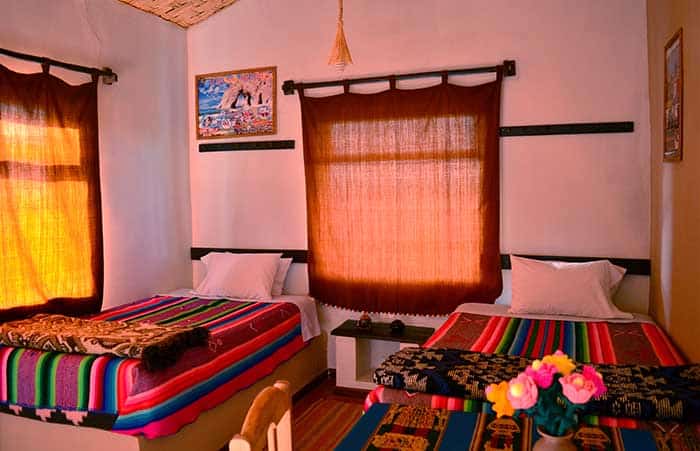
Some travelers ask us if bathing is possible in Titicaca Lake. With an average surface temperature of 10 to 14 °C (50 to 57 °F) the conclusive answer is NO 😉.
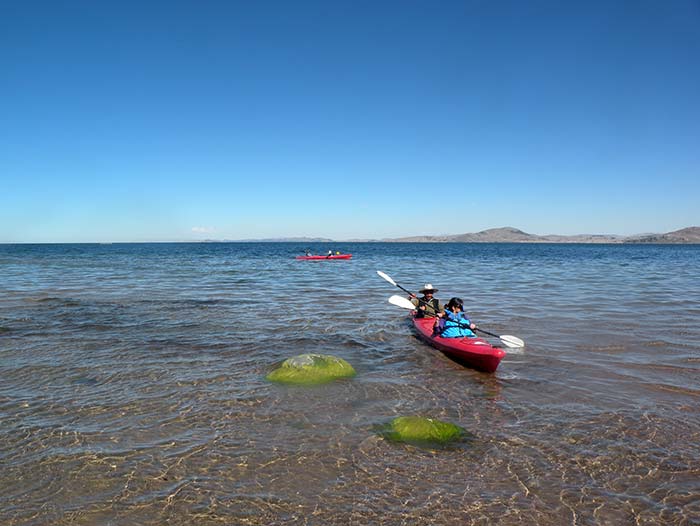
However, kayaking might be an option for you. Especially if you are spending the night in Luquina. If you are an active traveler and outdoor lover you have 2 kayaking options:
If your prefer an activity on dry land then mountain bike is the best alternative:
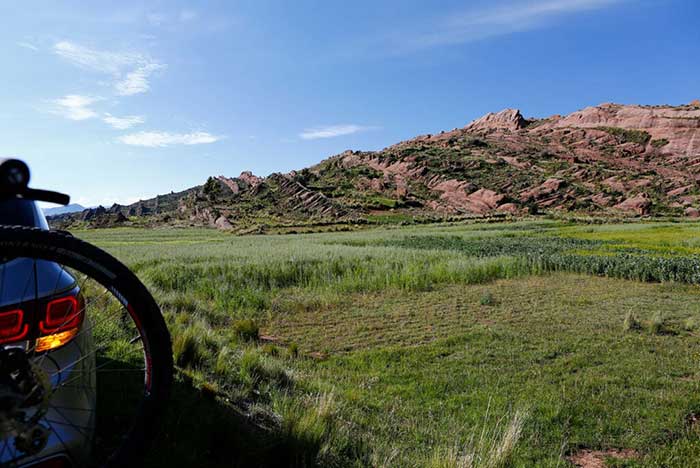
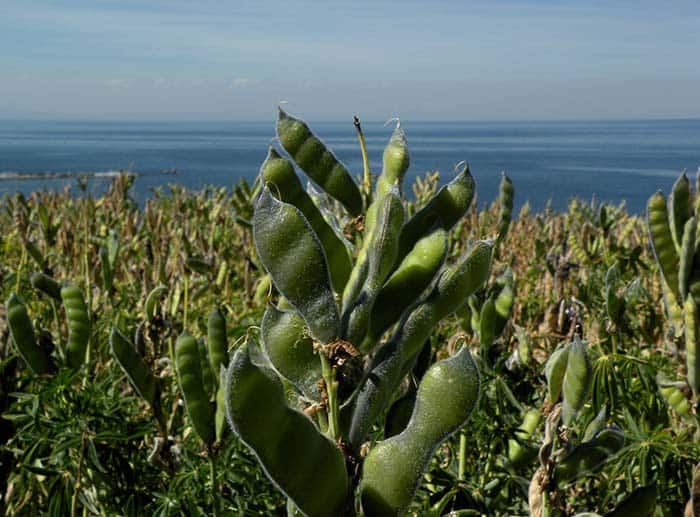
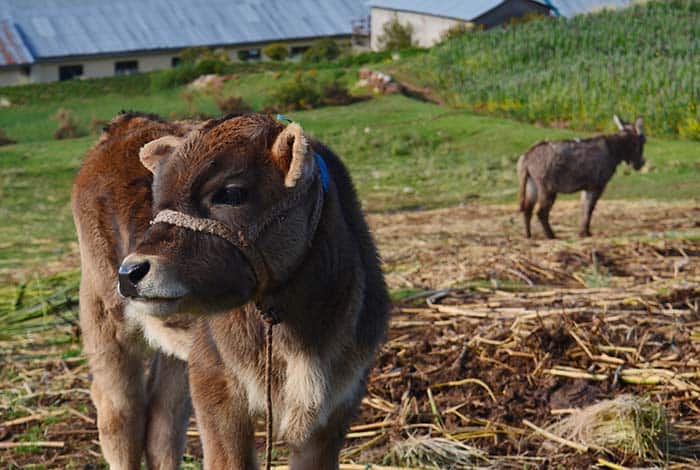
This is our tip for archaeology lovers and/or travelers arriving/leaving Puno by plane. Why? Because Siullustani is located en-route from Juliaca airport to Puno.
The pre-Inca burial towers of Sillustani are situated on the shores of Lake Umayo, about an hour’s drive from Puno. The site is still a little bit off the beaten path and receives only a few visitors. Our excursion includes a tasting of the local potatoes and crops in the house of a local farmer in the surroundings of Sillustani.
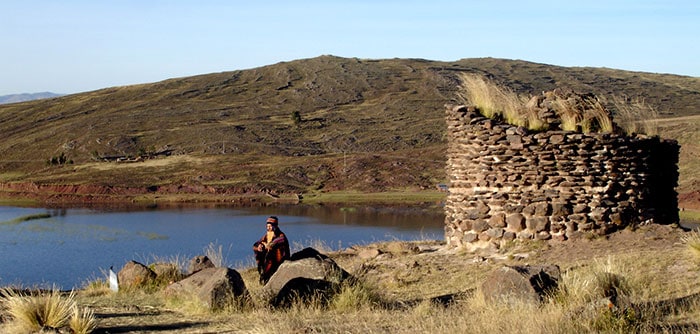
Puno is a city of 130,000 inhabitants. Even though not particularly appealing, this is the place to begin trips out onto Lake Titicaca. Most of the hotels are located just walking distance from the main square featuring the cathedral in Andean Baroque style. What makes it special? The main altar is the venerated image of the Virgin of Candelaria, patron of Puno.
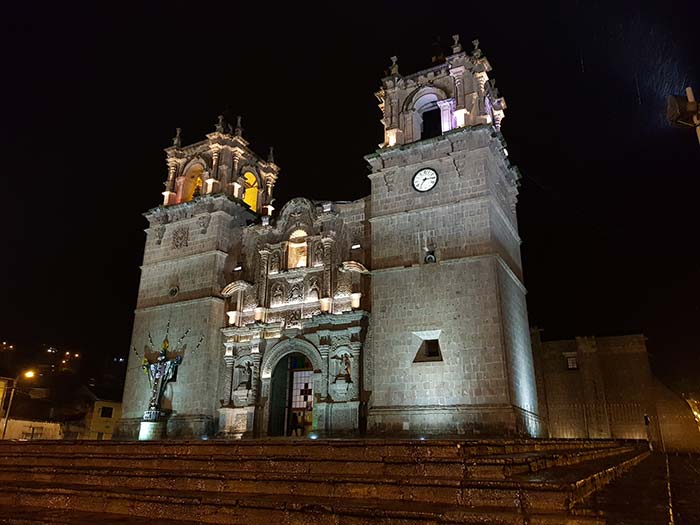
The veneration of the Virgen de la Candelaria in Puno is a fusion between Catholic and indigenous cultural traditions of the region. Every year, in February, Puno pays homage to 'Mamacha' (Mother) Candelaria during celebrations that go on for weeks. Parades, religious activities, brightly colored costumes, fireworks, and live traditional music and dancing are featured not only in the city of Puno but in the many small towns of the whole Puno region.
UNESCO declared the festival an Intangible Cultural Heritage of Humanity in 2014. This leads to the next common question among our travelers.
There are 4 different ways to travel between Cusco and Puno (separated by a distance of almost 400 km!).
A more detailed explanation of each of these options can be found in our Is the ‘Titicaca Train’ the best way to get to/from Cusco & Puno?
If you are staying in a hotel in the city, head to Lima Street, where most of the tourist restaurants are lined up one after the other.
If you are looking for a more intimate place, our tip is to walk to the cathedral, after some photo shots there, head to 'Casa del Corregidor’. This quaint historic building is one of the oldest in Puno has a sort of bistro bar serving casual and yummy food. On the menu, you will find different sorts of salads, smoothies, sandwiches, tapas, and traditional dishes with a creative local twist.
An alpaca burger or Titicaca's lake trout served in different varieties are some examples of the dishes you can find here. Vegetarians will love the quinoa soup and the lasagna filled with Andean cheese. Beer lovers can find a good choice of local craft beers at Casa del Corregidor.
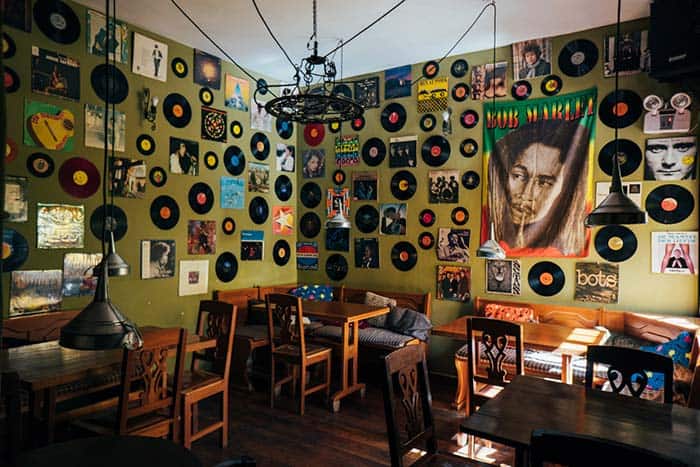
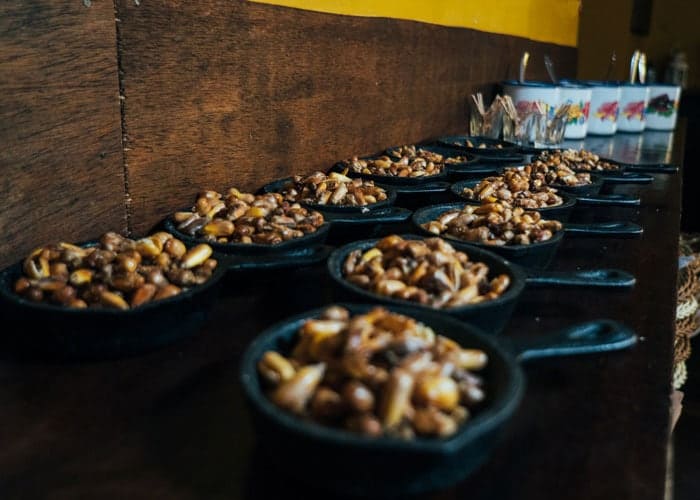
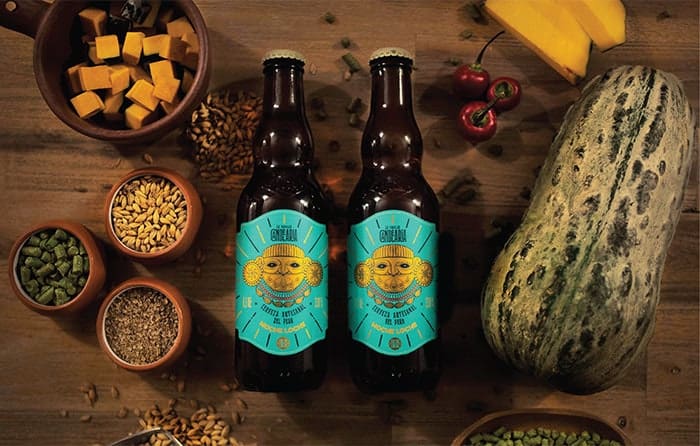
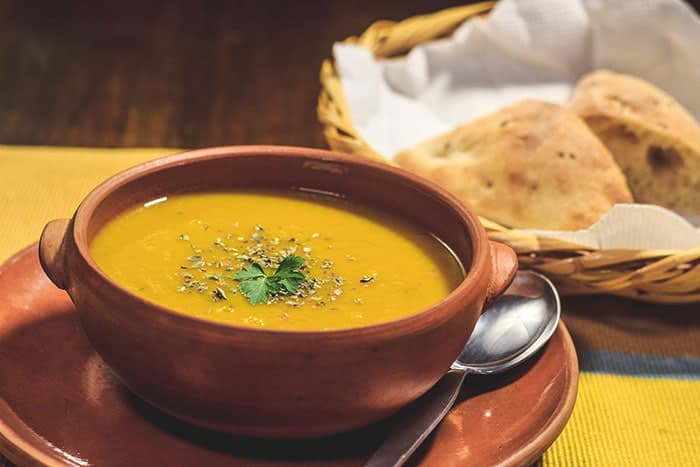
Lastly, the cloud forest of Puno (Sandia) is home of ‘Café Tunki’. This gourmet organic Arabica coffee boasts a floral aroma with sweet chocolate balanced with a subtle lime crisp acidity.
It was in 2010 that Wilson Sucaticona and his Tunki Coffee raised awareness in Peru about its chances for organic coffee. In this year Tunki coffee was named the best organic coffee in the world by the Specialty Coffee Association of America.
One of the few places in Peru where you can get a cup of Tunki coffee is at Casa del Corregidor in Puno.
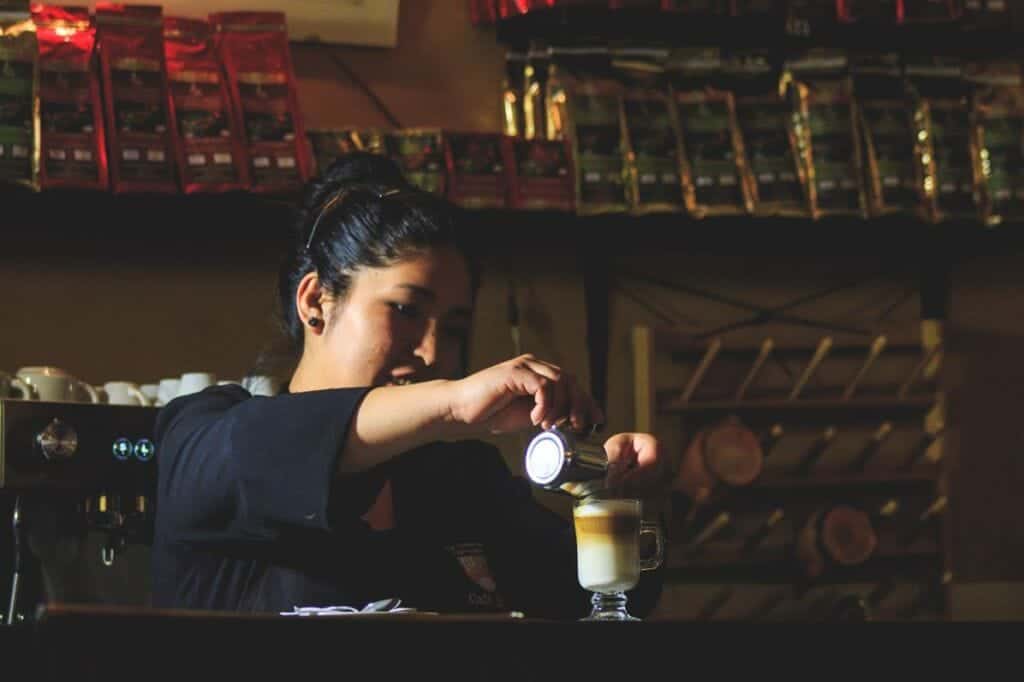
Much like Cusco, Puno has 2 marked seasons, the rainy season (from November through March) and the dry season (the remainder of the year). Unless your main motive to visit Puno is the Candelaria celebration we recommend visiting during the dry season for better chances of clear skies.
